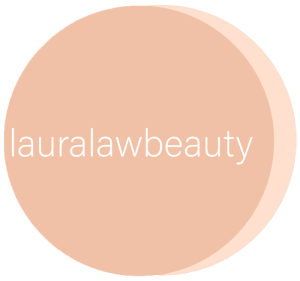Reports have shown that there’s a mass of plastic waste on the surface of the ocean that’s so vast, it can be seen from space. With plastic pollution killing hundreds of wildlife and now affecting us via the food chain: our culture of convenience is quite literally costing us the earth.
Plastic Waste
Plastic first became widely used in the 60’s. Durable, lightweight and cheap to produce it quickly became the go-to material for many of our domestic essentials. From food packaging and carrier bags to children’s toys and household items, plastic was practical, hard-wearing and cost effective; the perfect product for both businesses and consumers.
What wasn’t realised or perhaps considered, was the impact this everlasting substance would later have on our environment. With 300 million tons of plastic produced every year, 50% of it only used once before being thrown away and most plastics taking up to 1000 years to decompose; we have a serious problem on our hands.
Small Changes
Recently, small changes have been made in the UK in order to cut back on our consumption of single use plastic. This has included the introduction of a 5p charge in supermarkets and other shops to minimise the use of plastic carrier bags and also the transition to paper straws and wooden cutlery by high street food chains.
However; so much more must be done and on a much wider scale if we are to really make a difference. The UN recently warned that we have just 12 years to limit climate change catastrophe! This is a horrifying thought and not something that can be tackled single handedly, but if each and every one of us are more conscious and begin to make changes, surely, collectively we can make a difference?
What can we do?
There are many things that we do on a daily basis that contribute to environmental damage. From the energy consumption and pollution generated by our daily commute to the plastic waste from our morning coffee. And how about your beauty routine? Do you remove your make up with a re-usable wash cloth, or a disposable wipe? Is your empty shampoo bottle taken to the recycling bin in the kitchen, or thrown in the bathroom bin and forgotten about?
I’m aware that it’s impossible (and boring) to live a perfectly ethical life, but we can certainly try our hardest.
Here are 7 simple ways that you can gradually upgrade your beauty routine to be more environmentally friendly:
- Switch your disposable cotton pads for reusable ones. I recently discovered reusable cotton pads. They are a revelation! Not only are they kinder to the planet than their throw-away friends, but they’re super soft, purse friendly and the ones that I use are such a good size, that I only need to use a couple each time. When soiled, simply pop back into the drawstring bag provided and put them in the wash ready for next time.
- Use a Muslin cloth rather than a wipe for cleansing. It amazes me that people are still using make-up wipes. Not only are they damaging to the environment (wipes often contain polyester- a type of plastic that takes years to decompose), they fail to cleanse the skin properly – smearing grime, make up and dead skin cells around the face. Cleansing with a cloth not only feels a whole lot nicer, it leaves skin cleaner, softer and saves money.
- Try a bar of soap instead of shower gel. When did we all switch to bottled shower gels over a good old bar of soap? I agree, shower gels are easier to lather up, mess free and often smell a bit fancier, but soap lasts longer; therefore, saving money and the tiny sheath of cardboard it comes in is easily recycled.
- Buy wooden cotton buds rather than plastic. There is absolutely no way to recycle used plastic cotton buds. After use, they are either thrown in the bin or flushed down the toilet, ending up in our waterways and eventually on our shores FOREVER. I have switched to 100% biodegradable bamboo cotton buds which I bought from Amazon. They cost exactly the same as the plastic ones!
- Switch to ethical skincare. Ethical skincare can mean a variety of things: Is the packaging recyclable, are the ingredients natural or ethically sourced, has the product been tested on animals? Once upon a time, ‘green’ skincare wasn’t always the best quality, but in recent years natural skincare that’s free from nasty synthetics, sustainably sourced AND easily recycled, has had a HUGE upgrade. And with brands like REN, Bybiand Tata Harperto choose from, we have no excuse.
- Ditch your plastic toothbrush. Did you know that the average plastic toothbrush takes 200 years to decompose? With this in mind, I have recently converted to a wooden toothbrush. Not only is a wooden brush more planet-friendly, it looks way cooler – especially if you have a vintage style bathroom.
7.Try reusable sanitary products. OK, I know this isn’t the most appealing, but did you know that the average woman uses 12-16,000 disposable sanitary items in her lifetime? With an estimated 7.53 billion people on the planet and the larger portion of them female, that’s a lot of tampons to get rid of.Eco friendly alternatives Include; reusable knickers, panty liners and the more intimate (but possibly hygienic?) Moon cup.
I haven’t tried any of these options myself yet, but have lots friends that do – and swear by them!












